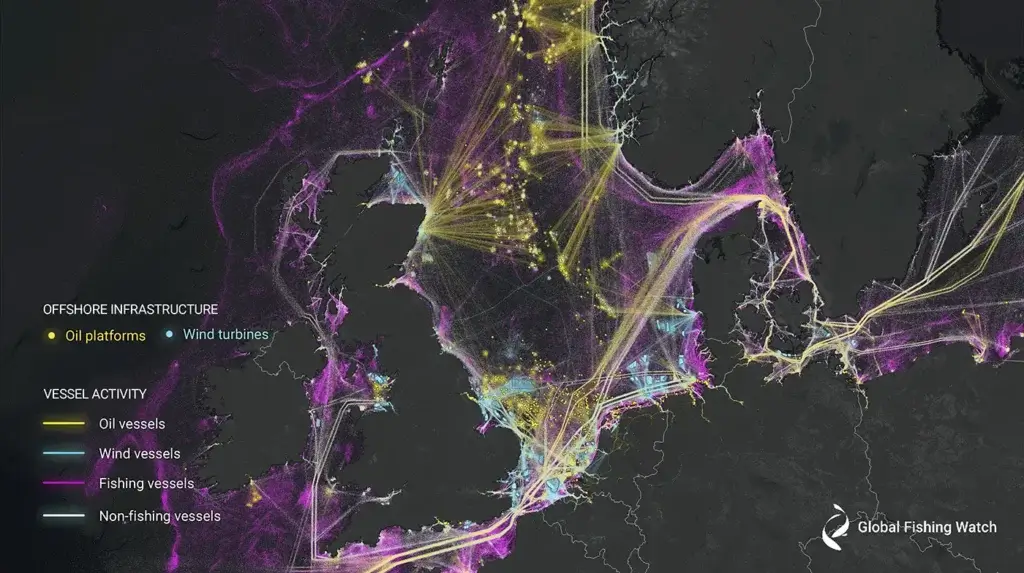
Introduction
In the vast expanse of our oceans, a groundbreaking discovery has been made, shedding light on what has been hidden in plain sight. A recent study by Global Fishing Watch, backed by Google, has unveiled an astonishing level of previously untracked human activity at sea, posing significant implications for maritime policy, environmental conservation, and national security.
Unveiling the Unseen
Researchers utilized AI and satellite data to reveal that a staggering 72 to 76 percent of the world’s industrial fishing vessels, along with a significant portion of transport and energy vessel activity, were not being tracked by public systems. This study, involving a massive analysis of 2 million gigabytes of satellite imagery across six continents, highlights the collaboration among Global Fishing Watch, the University of Wisconsin-Madison, Duke University, UC Santa Barbara, and SkyTruth. The findings also showed a large presence of ‘dark fleets’ in marine protected areas and in countries previously believed to have minimal vessel activity.
Why This Matters
The discovery of such a high number of ‘dark vessels’ raises critical concerns about overfishing, illegal activities, and the environmental impact of unregulated maritime operations. The study revealed a stark discrepancy in fishing activity between Asia and Europe, illustrating the scale of unmonitored fishing activities and the need for improved surveillance and tracking systems
Implications for the Navy
This revelation has several key implications for naval operations:
- Enhanced Surveillance and Security: Adapting surveillance techniques to effectively monitor these vessels is crucial for maritime security.
- Maritime Domain Awareness: The data aids in understanding traffic patterns and deploying naval resources more effectively.
- Environmental Protection Role: The Navy could enforce environmental regulations at sea.
- International Collaboration: The findings highlight the importance of global cooperation in maritime surveillance.
- Technological Advancements: This could inspire the use of similar AI and satellite imagery technologies in naval operations.
Should Americans Care?
Absolutely. The security and sustainability of our oceans have direct impacts on national security, economic stability, and environmental health. The study’s technology can be used to combat climate change, improving estimates of greenhouse gas emissions at sea and guiding wind development.
Conclusion
The open data and technology used in the study can help governments, researchers, and civil society to identify hotspots of potentially illegal activity, determine where industrial fishing vessels may be encroaching on artisanal fishing grounds, or simply better understand vessel traffic in their waters. Supported by Bloomberg Philanthropies, National Geographic Pristine Seas, Oceankind, and Google, this study marks the beginning of a new era in ocean management and transparency.
This study is a wake-up call to the hidden realities of our oceans and a call to action for enhanced global maritime governance and technological advancements in ocean monitoring.

